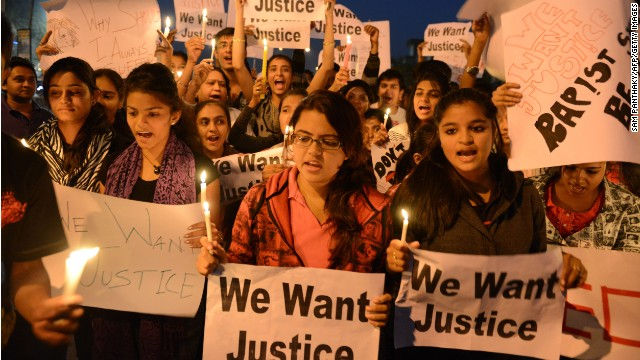Women don’t just need safety, they need justice: Re-framing our approach to violence against women
- Shakti

- Aug 3, 2019
- 3 min read
Updated: Aug 5, 2019
Meghana Chandra
We often hear that women in India aren’t safe. We hear that one in 3 women in India face sexual or physical violence at home. We hear that a woman is raped in India every fifteen minutes, and as many as 99% of cases go unreported. We hear of horrific incidents, tougher laws, and fast track courts. We hear about corruption, and delayed cases, but what we don’t hear about is women actually accessing justice in India. We don’t we ask if Indian women feel safe reporting physical or sexual violence, we don’t ask if they know how to get a protection order, and we definitely don’t ask if they have access to lawyers.
The safety of women isn’t just about having more women police officers and fast track courts, or about waiting for men or the society to learn and change. The safety of women is about systematically changing the way we approach the problem - we need to increase their ability to access and receive justice.
The access to justice problem, as in other parts of the world, is “a crisis of exclusion and inequality.'' The National Judicial Data Grid notes that only a mere 14% of the civil litigants in India are women. The conviction rate for crimes against women in India is only 19%. In Karnataka, the conviction rate is less than 5%. We need to equalize justice and engender trust in the system. We need to recognize that justice is only equal if the probability of receiving justice is the same regardless of gender, religion, caste, education, or language.

Justice is the ability to seek and obtain a remedy through formal or informal institutions of justice. If a woman is facing domestic violence, it isn’t enough to say that her only options are: to leave her husband and family, or to report the violence to the police. Each woman’s situation is different, and regardless of whether she is willing to take the step of leaving her husband or filing a complaint, she should still have other options available to her. We need to provide women with access to resources - counsellors or social workers to help them process information, lawyers to help them understand their options, financial aid or counselling to reduce their financial vulnerability, and support groups to connect them with others working through similar issues.
We also need to recognize that justice isn’t just about resolving identifiable problems such as domestic violence or rape. Women need access to greater justice in problems that they don’t necessarily recognize as being legal - such as negotiating work hours, utilizing government benefits, or complaining to the water and sanitation board. If more women have the information and resources they need to seek and obtain a remedy, and if more women are able to exercise their rights in a system that gives them justice, women will be safer.
We need to increase accountability and create fundamental change by:
Giving women information about their legal and non-legal options, regardless of their literacy levels;
Helping women collect information and draft paperwork in matters where they can represent themselves;
Connecting women to lawyers and reducing their need to rely on friends and family; and,
Setting up integrated networks of public health and legal resources to coordinate service delivery.
It’s time we stop relying on superficial measures such as tougher laws and faster courts, and instead focus on delivering justice to women by meeting them where they are.






Comments